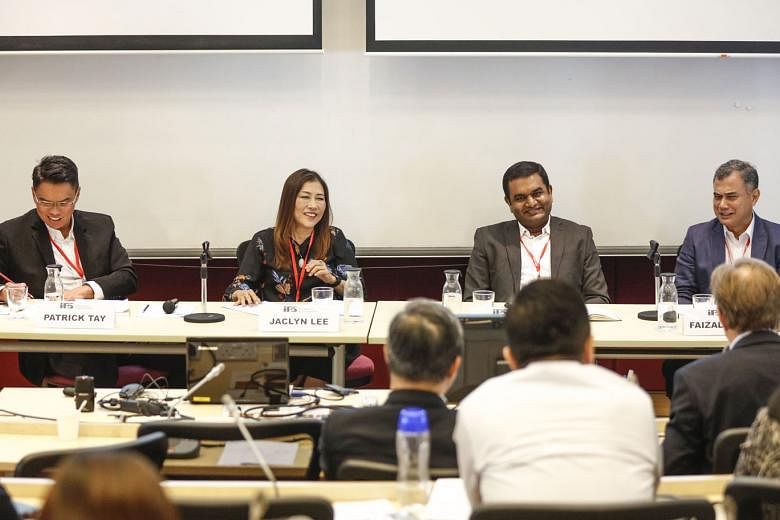A new ministry of ageing, coordinating closely with the manpower and education ministries, could help the authorities resolve emerging challenges such as the displacement of mature professionals, managers, executives and technicians (PMETs) because of automation.
Such a ministry should have a division to mitigate the incidence of ageism in employment, says a report about the future workforce by Institute of Policy Studies senior research fellow Faizal Yahya.
Discussing the challenges of economic disruption today, as well as Singapore's strategies to retrain its workers, Dr Faizal wrote: "A ministry of ageing may be required to cover a gamut of concerns from manpower to healthcare."
Launched at the Lee Kuan Yew School of Public Policy yesterday, the report is part of a larger collection by the Association of Pacific Rim Universities, a network of research universities.
Dr Faizal said the tight manpower situation in Singapore is due mainly to an ageing workforce, low total fertility rate and greater restrictions on the inflow of foreign manpower due to social and political factors.
The report noted that greater restrictions placed on the hiring of foreign employees since 2011 have resulted in a growing reliance on local manpower in an ageing workforce.
Nonetheless, greater government coordination is needed to sustain mature workers in gainful employment, said Dr Faizal.
On education, he wrote: "The process of education is no longer linear, but a continuous cyclical process that follows industry cycles." He said links between industry and institutes of higher learning should be strengthened.
In this, an amalgamation of the Manpower and Education ministries would support the shift in human capital trends.
If the same ministry would oversee the supply and demand for labour, such better coordination and timely government intervention would help policymaking, he said.
By working with a combined ministry, a ministry of ageing could help resolve challenges such as the large displacement of mature PMETs from certain industries.
He also recommended that the Ministry of Communications and Information establish a division working closely with the combined Manpower and Education ministries, and ministry of ageing, to deal with human capital needs of the infocomm sector.
The sector lacks workers in critical areas, such as data analytics and cyber security.
"Without critical infocomm human capital, the timeline for digitalisation of Singapore's economy will be further delayed," he said.
The World Economic Forum projected that 7.1 million jobs could be lost globally from 2015 to next year due to disruptive labour-market changes with the rise of the digital economy, although two million jobs would be created in fields such as information technology.
Singapore is placing bets on becoming a "smart nation" to stay relevant but its digital strategy, said the report, must also encompass the needs of its human capital to adapt and benefit from ongoing economic disruption.
At a panel discussion during the launch yesterday, Mr Patrick Tay, assistant secretary-general of the National Trades Union Congress, stressed the importance of inclusiveness in economic transformation.
He also noted that despite technological changes, there will be a transformation of jobs rather than losses, and more vacancies than before.
"The sheer speed... of changes is taking every country by storm," he said."The challenge is, how fast can we keep up?"


